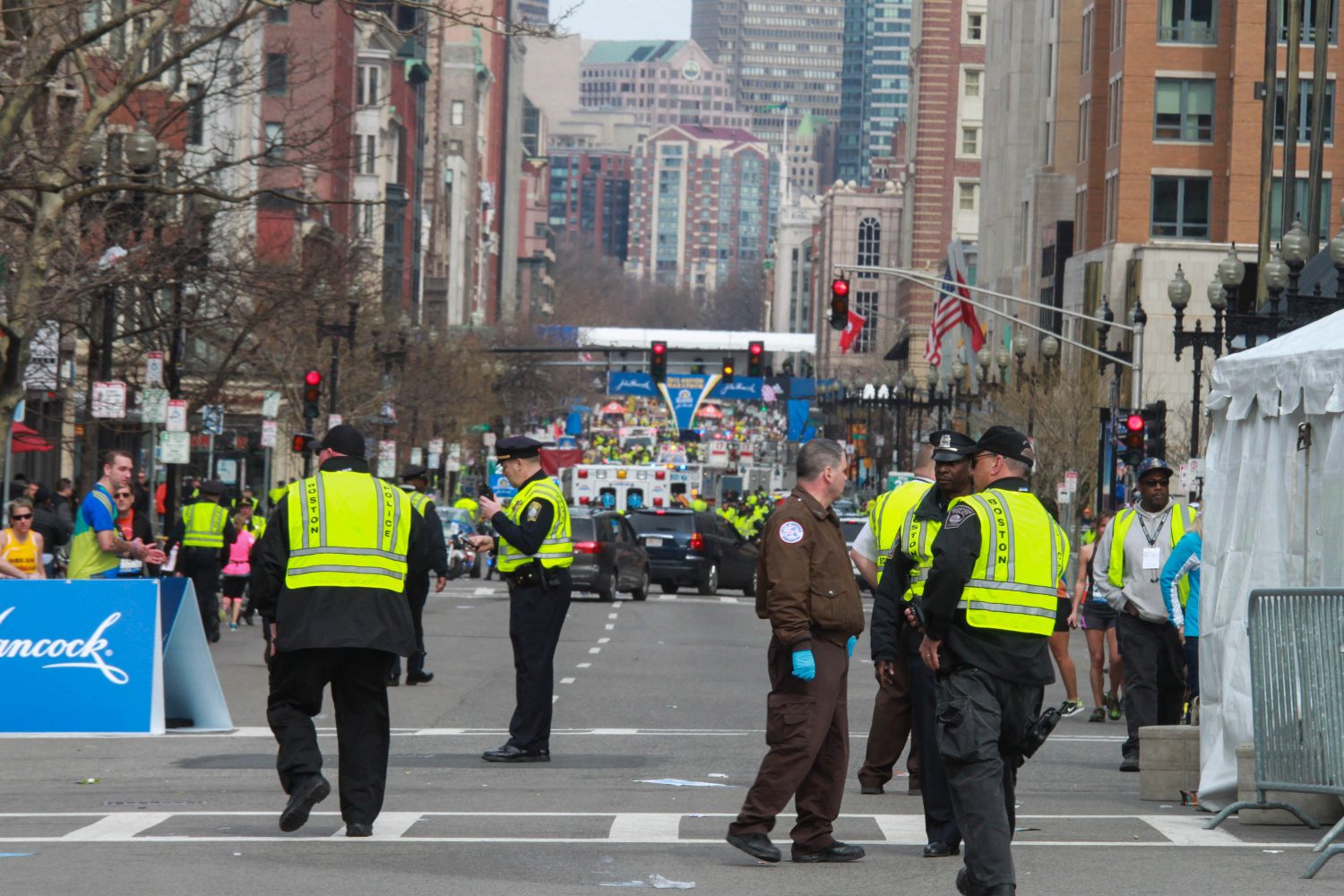When two bombs exploded near the finish line of the Boston Marathon Monday, April 15, Niles West alumna Becky Darling was 10 blocks away working on a research project for a Social Entrepreneurship course.
Darling, along with 25 classmates from Emerson College, were all on their computers, when one student saw the headline “Blasts at Boston Marathon Kill 2 and Injure 100” on the New York Times. Seconds later, everything changed.
Streams of sirens and helicopters were in the area for five hours, and the students were on lock-down for six, said Darling, who graduated from Niles West in 2011. Parents and friends from across the country were calling for safety reassurance, she said.
“Everyone quickly funneled to find their loved ones and find a couch to sit and watch the news,” Darling said. “Rumors rolled in about bombs found all over Boston, bombs on your campus, bombs in your building, but it was fear, not fact, that dictated people’s thoughts.”
The historic event, always held on Patriot’s day, is one of the biggest celebrations in Massachusetts; however, Monday, the 26.2-mile course was rocked with tragedy as runners and onlookers had to flee a bloody scene, leaving three people dead and more than 175 injured.
Alumna Maggie Swanson, who graduated from West in 2012 and now attends Boston University, said she was also affected by the explosions.
“I first got a text message about the bomb as I was walking to my dorm, about a mile away from where the finish line was,” Swanson wrote in an email. “I was with my friends and initially we all weren’t sure what the text message had meant when it said ‘bomb.’ At first I had thought that it was just celebration gone awry, but then we started seeing tons of ambulances, police cars and helicopters and we knew something was up. They stopped public transportation going into the city and then pictures started popping up on Twitter, so we got a better idea of how serious the situation was.”
Swanson and Darling both described a sullen and much calmer Boston today.
“People are out , but no one is really talking, the mood is not upbeat,” Darling said.
Massachusetts-native, social studies teacher Chris Schwarz said he was shocked when he heard the news.
“When I heard about the bombings just before 9th period yesterday it was a punch to the gut,” he said. “I’d spent time in each of my AP classes talking about Patriot’s day and how it’s a statewide celebration. The marathon has taken place on Patriot’s Day since 1897 and the Red Sox always play at home at 11 am. Typically it’s the first day of Spring Break for all the school kids and, in some ways, it’s the unofficial beginning of Spring. The city is alive and abuzz with a carnival like mood. ”
After months or often years of training, more than 20,000 people register for the race each year and thousands more cram the street of Boston to cheer on friends and family, according to Schwarz.
Junior Miranda Kang, who runs cross country, said she never expected a marathon to become so dangerous.
“Running can be a danger to health, especially running 26.2 miles; that can hurt your joints, but running should never be a danger like that,” Kang said.
Anne Heselton, gym teacher and girls cross country head coach, said she wanted to focus on the positives.
“Hopefully people will focus on the fact that there were more people helping in these situation than actually attackers,” she said. “If people can focus on the reaction being positive; people ran down the street and donated blood, there is a spreadsheet of people in Boston offering food and a safe place to stay, so we should focus on how people react to this and not so much the tragic event itself.”


